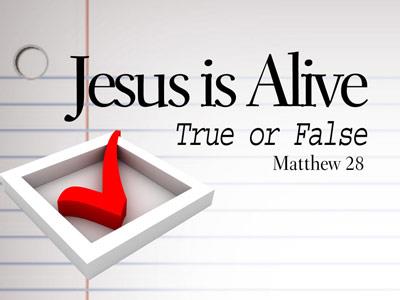-
Jesus, The Son Of God Series
Contributed by Dennis Davidson on Nov 28, 2017 (message contributor)
Summary: The conclusion of Jesus’ final public disclosure of Himself to His people was the ultimate confession of His complete identity. In this last act of public ministry also is recorded the Jews final rejection of Him & all that He stood for.
JOHN 10: 30-42
JESUS, THE SON OF GOD
Here we come to the conclusion of Jesus’ final public disclosure of Himself to His people. It was the ultimate confession of His complete identity. In this last act of public ministry also is recorded the Jews final rejection of Him and all that He stood for. The account ends with His returning to where it all began — the Jordan River, where John had baptized Him.
I. THE MAN WHO IS GOD, 30-33.
II. THE SON OF GOD, 34-36.
III. THE WORKS OF GOD, 37-39.
IV. WHERE THEY BELIEVE IN GOD, 40-42.
The equality of power and unity of essence between the Father and the Son is expressed in verse 30. I and the Father are One.
Martin Luther said this means "one being, one God, one Lord. While They are two in person, They are a unit in essence. Jesus was saying also that They have the same unity of purpose, will and work. Jesus’ will is identical to the Father’s. The absolute identity of wills involves identity of nature. Jesus and the Father are One in will and in nature for both are God (20:28; Phil. 2:6; Col. 2:9).
Jesus is not merely a righteous man, a prophet, or a divine spokesman. Jesus is the instrument of divine revelation and salvation. He is the visual image of God for the world.
Such statements by Jesus demand a response. We see the Jews response in verse 31. The Jews picked up stones again to stone Him.
The hostile crowd reacted and attempted to stone Jesus because they understood the implications of His claim. This is not a man saying he has joined his efforts with God. This Man is saying something dangerous, something more, something blasphemous. He is saying He is God in human flesh.
Again refers back to chapter 8 (8:59) and Jesus’ disclosure of His relationship to Abraham which also ended in an attempt to stone Him.
Jesus’ courage was displayed in His calm question of verse 32. Jesus answered them, "I showed you many good works from the Father; for which of them are you stoning Me?"
Before they could throw their stones Jesus answered them with a fair question. Which of His many great miracles ("works"; 10:25, 38) from the Father was their reason for wanting to stone Him? Note He says from the Father. He is not acting alone.
In verse 33 the Jews answer like most people they don’t stand against good works. The Jews answered Him, "For a good work we do not stone You, but for blasphemy; and because You, being a man, make Yourself out to be God."
Their problem is not Jesus’ miracles (10:32) but His words (6:42, 60; 7:29 – 30).
They claimed that they found no objection in His works. (Yet His healings on the Sabbath had angered them [5:18; 9:16].) But they had finally found a justifiable cause for standing against Him and His words. They said they objected because He, a mere man, claimed to be God. This, they said, was blasphemy. Ironically, Jesus is God who become Man (1:1, 14, 18).
II. THE SON OF GOD, 34-36.
Jesus defends Himself in verse 34 by citing Psalm 82:6. Jesus answered them, "Has it not been written in your Law, ‘I said, you are gods’?
Psalm 82 was well known and provided a critique of Israel’s failure to respond to God (82:5 – 7): "They know nothing, they understand nothing. They walk about in darkness; all the foundations of the earth are shaken. "I said, ‘You are "gods"; you are all sons (Heb. beni) of the Most High.’ But you will die like mere men; you will fall like every other ruler."
The relevance of the passage is striking. The absence of knowledge and understanding is a fitting description of Jesus’ audience. They do not know the shepherd’s voice.
Jesus unfolds the implications of the passage in verse 35. "If he called them gods, to whom the word of God came (and the Scripture cannot be broken),
Psalm 82 speaks of God as the true Judge (Ps. 82:1, 8) and of men or gods, appointed as judges, who were failing to provide true judgment for God (Ps. 82:2-7). [The Hebrew word for God or gods is elohîm.] This word is used elsewhere (Ex. 21:6; 22:8) to mean human judges. "Gods" in Psalm 82:1, 6 also refers to these human judges. In this sense, God said to the Jews, You are gods. In no way does this speak of a divine nature in man.
Jesus thus argued that in certain situations (as in Ps. 82:1, 6) men were called "gods." If there is a sense in which the term "gods" can be applied legitimately to those other than God Himself in the Scripture, then much more may Jesus use this term to assert His unity with the Father. If others can be called a "gods" here in God’s unbreakable word — why are Jesus’ words blasphemy?

 Sermon Central
Sermon Central



